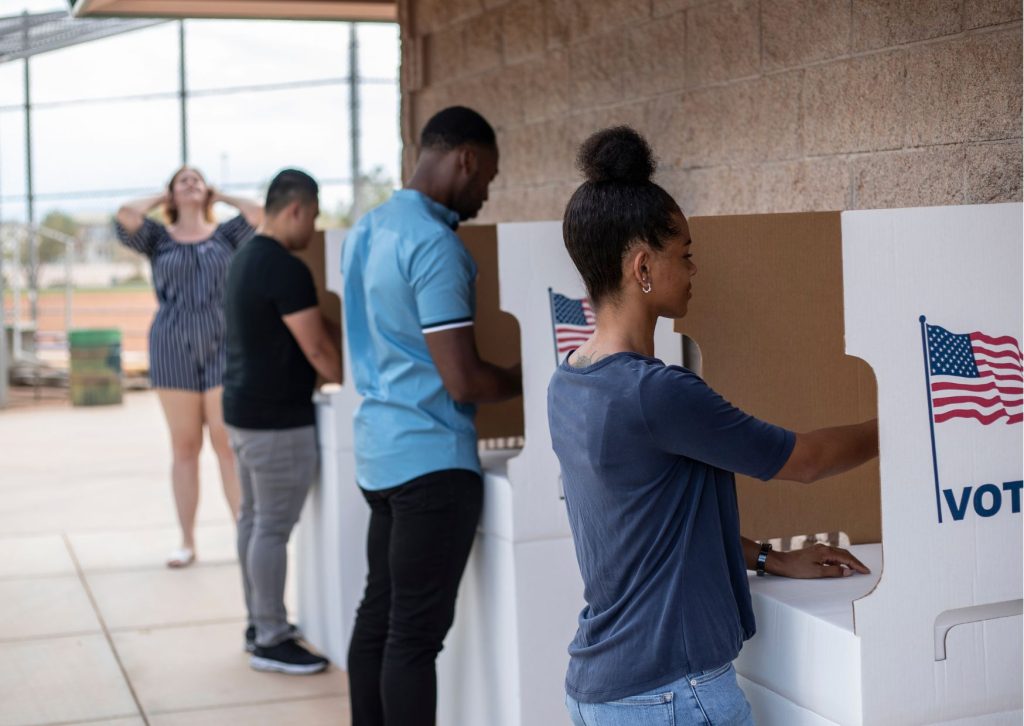Restoring your Voting Rights in Florida
The right to vote is a civil right; however, for some people this right was taken away. Convicted Felons had their right to vote taken away. The 2018 passage of the Voting Restoration Amendment, Amendment 4, created a path whereby certain convicted felons could restore their right to vote. This amendment can be found in Article IV section 4 of Florida Constitution.
Amendment 4 restores voting rights to felony offenders, except those convicted of murder or a felony sexual offense, “upon completion of all terms of sentence including parole or probation.” Art. VI § 4(a) (Fla. Const. 2020); Fla. Stat. § 98.0751. Completion of all terms of sentence requires the completion of prison or jail time; parole, probation, or other forms of supervision; and payment of the total amount of all fines, fees, costs, and restitution ordered as part of the felony sentence of any outstanding legal financial obligations—fines, restitution, costs, and fees—ordered by the sentencing court.

A person convicted of murder as defined in Fla. Stat. § 98.0751 (2)(c), or a felony sexual offense as defined in Fla. Stat. § 98.0751(2)(b), is not qualified to vote pursuant to Amendment 4. A person convicted of a crime other than murder, or a felony sexual offense is not qualified to vote pursuant to Amendment 4 unless they have completed all terms of sentence as defined in Fla. Stat. § 98.0751(2)(a), arising from the person’s felony conviction or convictions. Those convicted of murder or sexual offenses, continue to be permanently barred from voting unless the Governor and Cabinet vote to restore their voting rights on a case-by-case basis.
Importantly a clemency application is not required for the restoration of voting rights pursuant to Amendment 4. Qualifying to vote under Amendment 4 does not restore any other civil rights- including the right to serve on the jury or to hold public office – or the specific authority to own, possess or use firearms to a person convicted of a felony.
There are certain factors that are crucial to whether one is indeed eligible to have your voting rights restored. Recently, we have seen persons arrested for voting before their rights were restored. Many persons have difficulty determining the amounts owed in fines, fees, costs, and restitution. To determine this amount a person should:
- Look at the judgment(s) and sentence(s) to determine the fines, fees, costs and/or restitution which were ordered as part of the felony conviction(s).
- To the extent an amount was ordered, the person needs to determine how much has been paid and whether the amount paid equals or is more than the total amount ordered.
- The person can also contact the Clerk of Court in the county or counties of conviction to get a copy of his or her judgment(s) and sentence(s). The Clerk of Court can also help the person find out how much has been paid and whether the amount paid equals or is more than the total amount of fines, fees, costs and/or restitution ordered. The Public Defender’s office or private attorney who represented the person in the felony proceeding may also be able to help with information.
- If a person is still unsure about fines, fees, costs, and restitution, and the impact upon restoration of voting rights, the person can ask for an advisory opinion from the Florida Division of Elections.
Contact us if you would like to discuss the restoration of your voting rights, we will be happy to speak with you.
